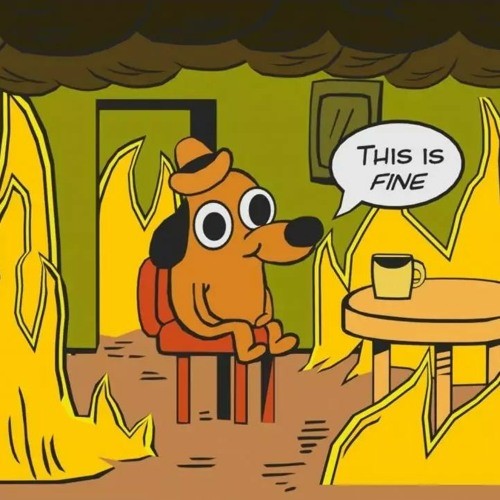Everything is Fine!

I hate to tell people this, but everything humans to do destroy the ecosystem also will come back and destroy humans.
In 2006, a deadly fungus started killing bat colonies across the United States. Now, an environmental economist has linked their loss to the deaths of more than 1,300 children.
The study, published in Science on Thursday, found that farmers dramatically increased pesticide use after the bat die-offs, which was in turn linked to an average infant mortality increase of nearly 8%. Unusually, the research suggests a causative link between human and bat wellbeing.
“That’s just quite rare – to get good, empirical, grounded estimates of how much value the species is providing,” said environmental economist Charles Taylor from the Harvard Kennedy School, who was not involved in the study. “Putting actual numbers to it in a credible way is tough.”
The crisis for bat colonies began in 2006, when a fungus called Pseudogymnoascus destructans hitchhiked from Europe to the US. P destructans grows on hibernating bats in winter, sprouting as white fuzz on their noses. It can extinguish a bat colony in as little as five years.
When Eyal Frank, an assistant professor at the University of Chicago, learned about the disease, called white-nose syndrome, he realised it provided a perfect natural experiment to demonstrate the value of a bat. Bats eat 40% or more of their bodyweight in insects every night, including many crop pests. What would their disappearance mean?
In infected areas, he found, farmers compensated for the loss of bats by significantly increasing their use of insecticides – by 31.1% on average.
Next, Frank looked at infant mortality – a metric commonly used to judge the impact of environmental toxins. Infected counties had an infant death rate 7.9% higher, on average, than counties with healthy bats, despite pesticide use being within regulatory limits. That equates to 1,334 extra infant deaths.
There’s often a whistling past the graveyard deal when it comes to ecological collapse and climate change that sure, it might be awful, but humans are adaptable and fundamentally things will be OK.
They will not be OK. Neither will your children or grandchildren. Or you, maybe.


